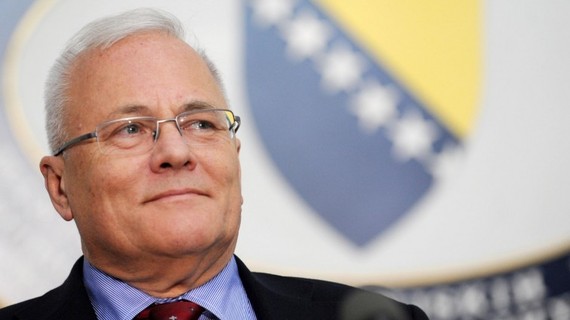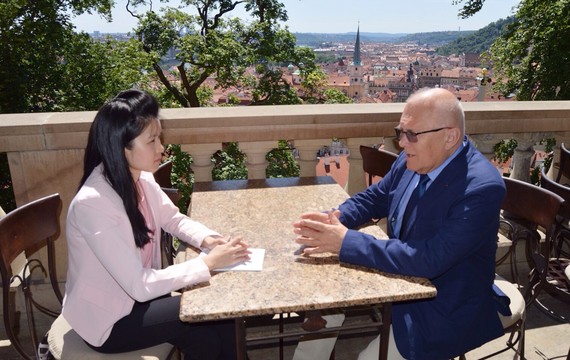Peter Balazs is the former Minister of Foreign Affairs of Hungary and the former European Commissioner for Regional Policy. He currently holds a Jean Monnet ad Personam Chair at Central European University.
After 1990, Balazs joined the Government and the diplomatic service of Hungary several times. He was a State Secretary for Industry and Trade (1992-1993) and a State Secretary for European Integration (2002-2003). He was nominated Ambassador of Hungary to Denmark (1994-1996), Germany (1997-2000) and to the EU in Brussels (2003-2004). In 2009-2010 he was Foreign Minister of Hungary.
Balazs also acquired experience in various EU positions. He was the Government Representative of Hungary in the European Convention drafting the Constitutional Treaty which has become, after several modifications, the Lisbon Treaty. In 2004 he was nominated the first Hungarian Member of the European Commission responsible for regional policy. On the invitation of the European Commission he coordinates priority projects of the Trans-European Transport Network. Lan Anh Vu sat down with Balazs to hear more about his journey and what he thinks the top three priorities are for the EU in the next five years.
As told to Lan Anh Vu
My Career in Politics, Diplomacy and Education
I am originally an economist. I started working in the export company as a young person. One day, I was invited to the Ministry of Foreign Trade, which was in charge of international economic institutions, including the European communities. They offered me a place to go to the Ministry and to the Union with the EC. I was around 28 years old. I accepted the offer, although it was never my objective to work for the State Administration. I wanted to be an export salesman and travel all over the world.
Later, I was in Brussels for Hungarian representation. When I returned, I was placed in the much larger field of international economy organizations as the head of department. Then came the second the big change; after the turn, the system in Hungary changed in 1992. I was again invited to the Ministry of Industry and Trade to be the State Secretary, so I made a big jump. In 1997, there was a vacancy in Germany, I was asked to go to Bonn at that time it was not yet Berlin to be an Ambassador. Then came the time when I shuttled between government jobs, diplomacy, EU jobs and finally the academic world, which is where I am now.
Most things that happened in my life have been unexpected. There are two moments in my life when I wanted to do something. The first was to be an export salesman, in my very early years, in order to travel the world. The second was to work within the EU. These were two of my objectives; the rest just happened to me and was beyond my control.
Challenges
My challenge was to be the first Hungarian Member of the European Commission because everything else was somehow within the politics of my own country. At the time, I was playing on a much higher level in an organization with 25 countries. I had one of the top jobs, was a member of the European Commission, worked with an international team and handled problems at all the European levels. It was above the national level.
Lessons Learned
I've learned that once you do something, you must be devoted to the job and you have to do your best to perform. Never be afraid of losing that job. I frequently got difficult jobs. I was the first person in Hungary to deal specifically with European Integration, so I had to establish a new desk at the Ministry in my younger years. When I was named the State Secretary for Industry and Trade, it was a big privatization time. Furthermore, most of my jobs presented new challenges. It's a great thing when you are invited to do something new. I was mostly called upon to navigate unknown things, and I like those kinds of job.
My Perspective on Life
You can compare life to a journey by train. When you sit by the window on a train, you can see new things and time passes. On a train, you have the time of arrival with life--you never know when the end of the station comes and where it is. It's a journey, and you must be open to changes in situations. You should be prepared for undefined, uncertain time frames; you never know when you may come to an end. For that reason, you should have some missions that you want to do, as well as ideas of what you want to achieve, within your lifetime.
My Definition of Success
Success is when other people recognize and thank you for solving their problems. I wouldn't define success as personal glory, rather as solving problems for other people. In this way, you can contribute something to the world.
Top 3 Priorities for the EU
My first point would be to produce fewer problems, because some problems are self-made problems. Nobody asked us to make the single currency--the Euro; we wanted to do it. Some problems are self-produced problems. We need to put these on our shortlist of questions so we can really solve them and achieve something.
Second, we need to find better solutions to external problems, like the refugee crisis, because these are real challenges--not self-made problems.
Third, we need to be very flexible regarding changes. The EU is a very conservative organization. There are excellent jobs available, and once people get a good job in the Commission or Parliament, they want to maintain the situation. I think they should be very open to radical changes because if a system is not open for changes, it will collapse and disappear.
Advice for Young People
Knowing what is happening in the world is very important. There are many important devices, such as television and the Internet, where you can gather information, but you need time to understand what is happening and learn as much as possible. My best advice for young people is to learn languages and everything possible in order to follow what is happening and keep updating things. In addition, you should have personal plans and be flexible in order to change to those plans if necessary--not just stick to things. In other words, be open and flexible so you can adapt yourself to new situations.
This interview has been condensed and edited.
This post is part of "How I Got There" series, which features people around the world speaking about their journeys. What is the path to success? What challenges did people face and how did they overcome them? Lan Anh and her guests answer all these questions and much more. To view the entire series, visit here.


